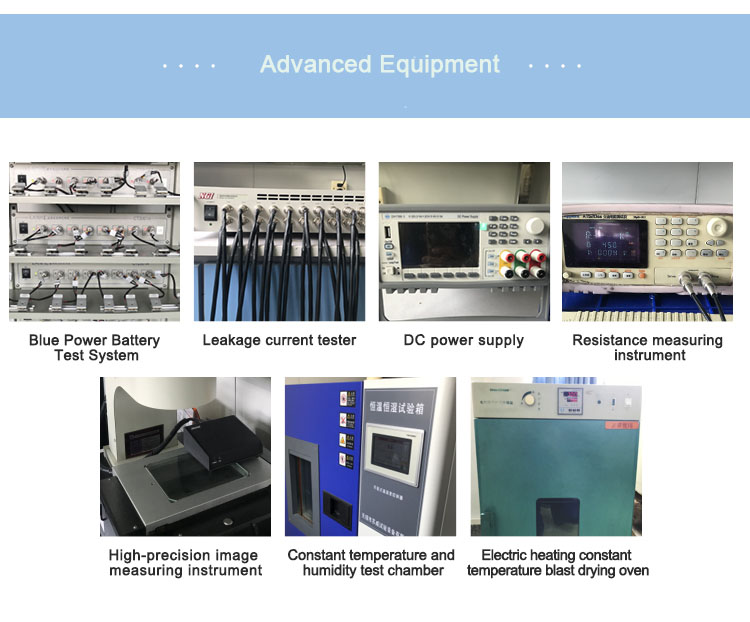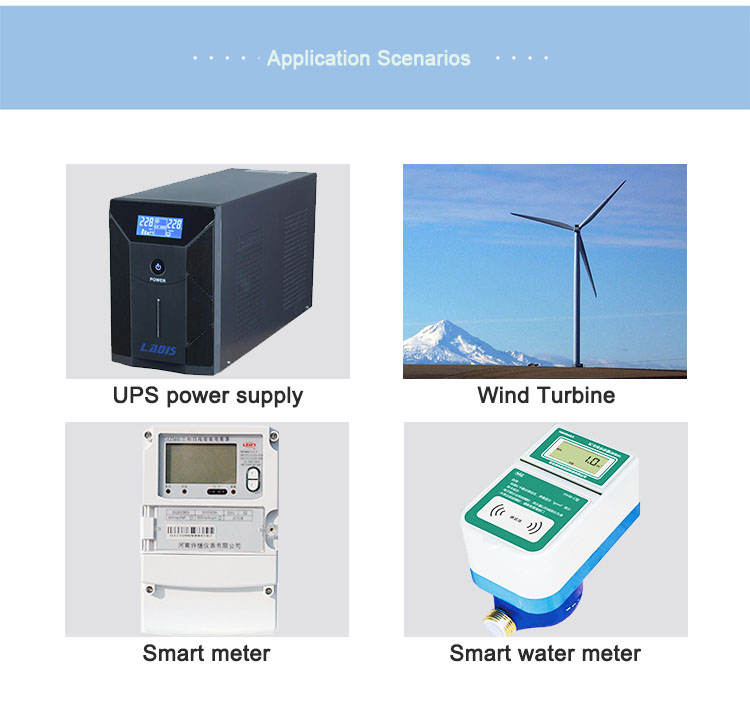PRODUCT DESCRIPTION
Electrical Characteristics:
Ultra-high capacitance (0.1F~5000F)
2000~6000 times larger than electrolytic capacitors of the same volume
Low ESR
Super long life, charge and discharge more than 400,000 times
Cell voltage: 2.3V, 2.5V, 2.75V
The energy release density (power density) is dozens of times that of lithium-ion batteries
Advanced Equipment:

Application Area :

Wireless communication----pulse power supply for GSM mobile phone communication
Two-way paging; other data communication equipment
Mobile Computers—Portable Data Terminals; PDAs; Other Portable Devices Using Microprocessors
Industry/Automotive——intelligent water meter, electricity meter; remote carrier meter reading; wireless alarm system; solenoid valve; electronic door lock; pulse power supply; UPS; power tools; auto auxiliary system
Consumer Electronics
*FAQ:
Compared with batteries, what is the prospect of supercapacitors?
A: Some mature battery technologies, such as lithium-ion batteries, nickel-hydrogen batteries, and lead-acid batteries, have been maturely developed, yet their development is restricted because chemical reactions occur during the charging and discharging process. Therefore, the improvement of the performance of the battery mainly depends on the improvement of the packaging technology and the strengthening of the preparation process. Supercapacitor technology is still in its infancy and has a high potential for development. Compared with chemical batteries that are subject to the fixed structure of the battery, supercapacitors mainly rely on the physical properties of the material for energy storage. At the same time, compared with other mainstream batteries, supercapacitors still have not fully utilized the potential of surface energy storage, and have not got rid of the "workshop" manufacturing model and the shortage of raw material supply.
What are the disadvantages of supercapacitors compared to batteries?
Its size is relatively large, and its storage capacity is smaller than that of a battery of comparable size. Even if it reaches farad-level power, it is still pitiful compared to traditional batteries. According to current technology, it still cannot be used as the main energy storage device for electric power, because its power can only drive the vehicle for a few kilometers.
+86 181 2299 5593
+86 18122995593
+86 769 8831 3605
Beside Luchong Bridge, Hou Road, Caibai Village, Daojiao Town, Dongguan, Guangdong, China
Navigation